|
|
|
|
When a huge container ship ran aground in the Suez Canal recently, the value of this major trade route got plenty of attention around the world. But whose idea was it to create a canal between the Mediterranean Sea and the Red Sea, and how did they do it? Lucia Carminati traces the history of the waterway project and its impact on settlements, trade and marine life.
It’s often assumed that animals with large brains – like whales and dolphins – must be intelligent. But research now shows that the brains of these aquatic mammals are special for a different reason: they produce a lot more heat than the brains of other mammals. This allows them to maintain a functional brain temperature despite their cold water habitats. Paul Manger explains that in the context of global warming, this new understanding
may guide conservation efforts to secure the future of as many cetacean species as possible.
|
Moina Spooner
Commissioning Editor: East and Francophone Africa
|

|
|
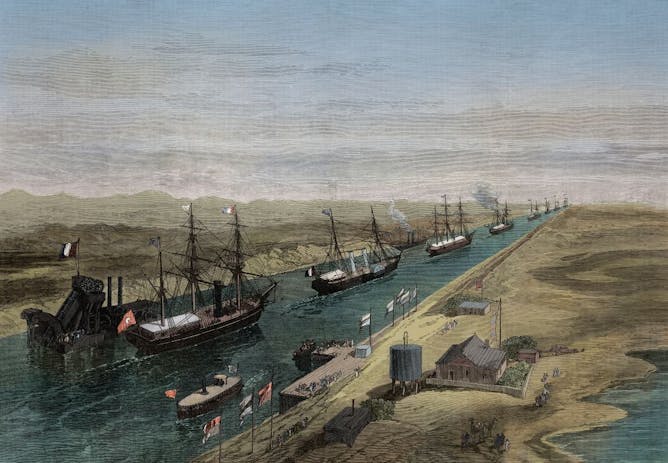
The procession of ships in the Suez canal for its opening. Illustration from the magazine “The Illustrated London News, volume LV, November 18, 1869.
DEA / BIBLIOTECA AMBROSIANA/Getty Images
Lucia Carminati, Texas Tech University
Prior to the mid-19th century, the Isthmus of Suez – the 125km strip of land that lies between the Mediterranean Sea and the Red Sea – was a quiet spot.
|
|
|
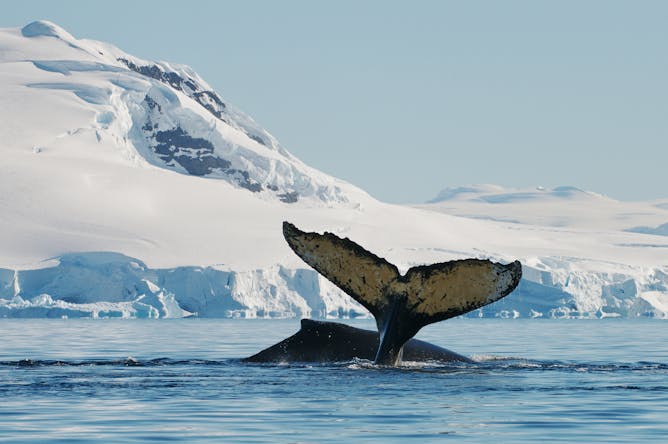
A humpback whale near the Antarctic ice.
Dr Olga Shpak
Paul Manger, University of the Witwatersrand
The cetacean brain has a specialised thermogenic system that helps the animal's brain to produce enough heat to maintain a functional brain temperature.
|
Education
|
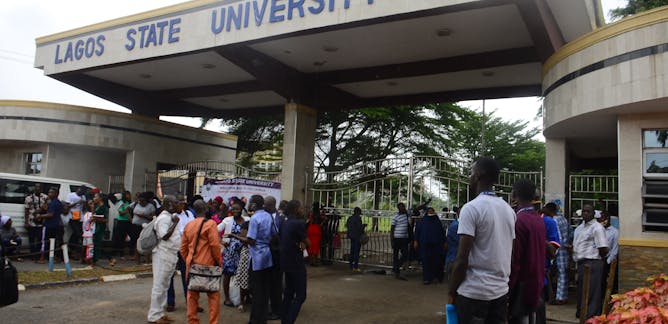
Ayodeji Olukoju, University of Lagos
Transparent selection processes and merit should be emphasised more in appointing vice-chancellors in Nigerian universities.
| |
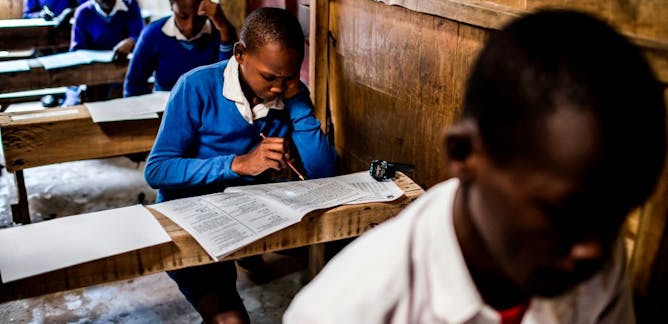
Caroline Sabina Wekullo, Masinde Muliro University of Science and Technology
No single factor can entirely account for students’ persistence and it's important to take an integrated approach to keep more children in school.
|
|
|
Business + Economy
|

Dr. Chao Mbogho, Kenya Methodist University
A lack of consistent mentorship models leads to a skills gap which affects the global competitiveness of Kenya's students and graduates.
| |
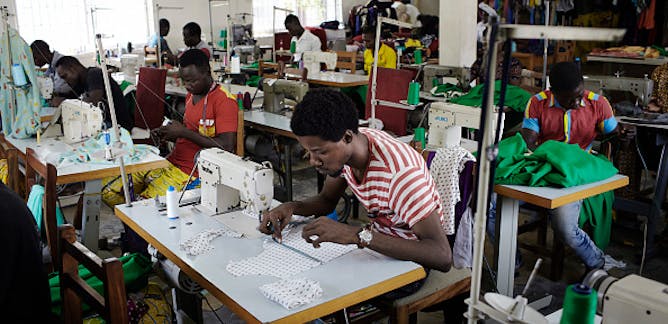
Anthony Abiodun Eniola, PhD, Landmark University
SMEs must incorporate Total Quality Management practices in their organisational culture for better performance.
|
|
|
Health + Medicine
|
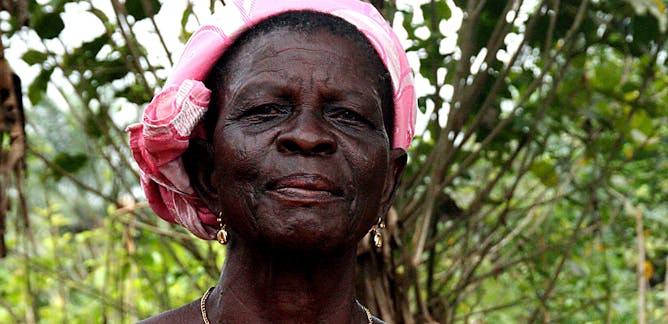
Cati Coe, Rutgers University
Families in Ghana are struggling to manage the long-term care of ageing relatives.
| |
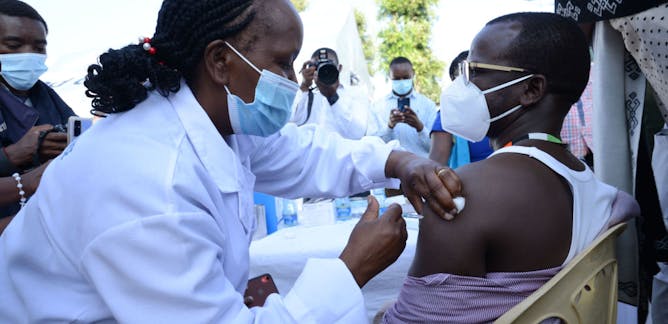
Catherine Kyobutungi, African Population and Health Research Center
Kenya grapples with two major challenges in the vaccination rollout: access to sufficient doses in light of the global shortage; and vaccine hesitancy.
|
|
|
Politics
|
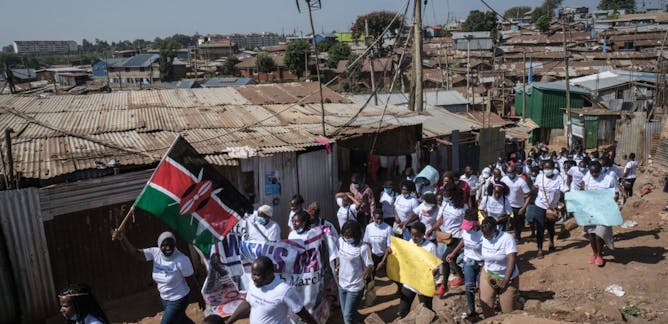
Wangu Kanja, University of Birmingham; Heather D. Flowe, University of Birmingham; Nic Cheeseman, University of Birmingham
Removing funding from research-led projects puts people in highly vulnerable situations.
| |
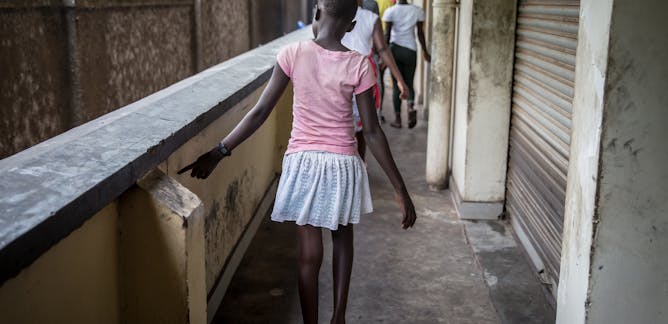
Lindsay Stark, Washington University in St Louis; Luissa Vahedi, Washington University in St Louis
A gender perspective to public health is essential to human rights and safety in crises situations.
|
|
|
Environment + Energy
|
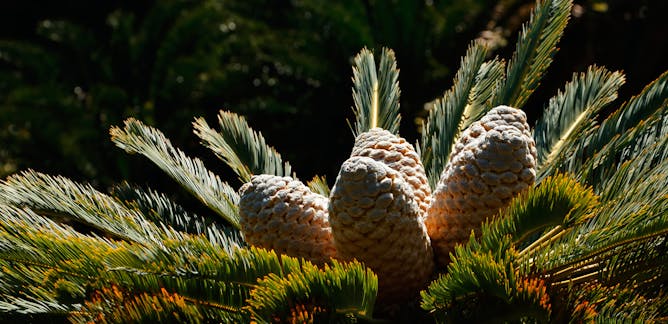
Kanle Satishchandra Nitin, Cape Peninsula University of Technology; Sjirk Geerts, Cape Peninsula University of Technology
Most South African provinces are favourable for the establishment of a new invasive alien pest, which may lead to the extinction of native cycad species.
| |
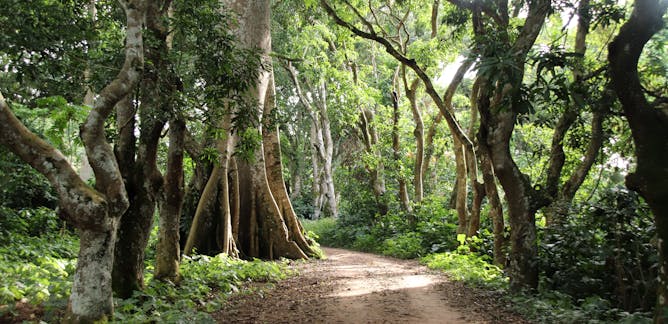
Michele Francis, Stellenbosch University
A stable ecosystem of organic matter is the key to improving agricultural yields in the surrounding farmland and fighting climate change.
|
|
|
| |
Featured events
|

|
10 Marais Street, Stellenbosch , Stellenbosch, Western Cape, 7600, South Africa — Stellenbosch University
|

|
27 St Andrews Road, Parktown, Johanesburg, Gauteng, 2193, South Africa — University of the Witwatersrand
|

|
Robert Sobukwe Road, University of the Western Cape, Bellville, Cape Town, Western Cape, 7535, South Africa — University of the Western Cape
|
|
|
|
| |
| |
| |
Would you like to republish any of these articles?
|
|
It’s free to republish, here are the guidelines.
Contact us on africa-republish@theconversation.com in case you need assistance.
|
| |
| |
| |
| |
|
|
|
|
|
|
|